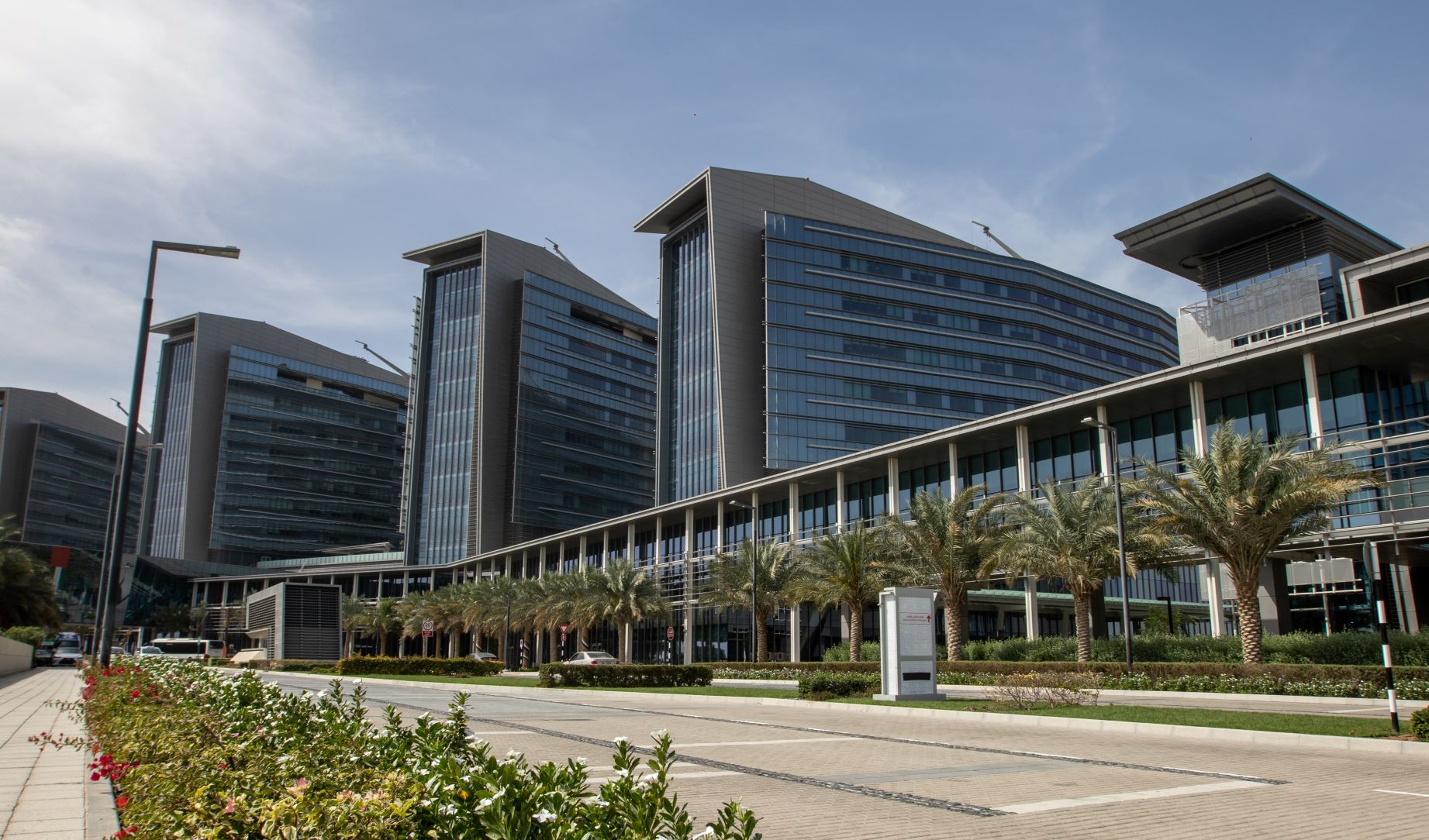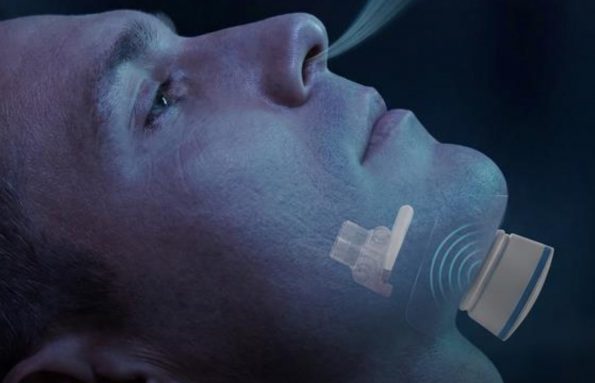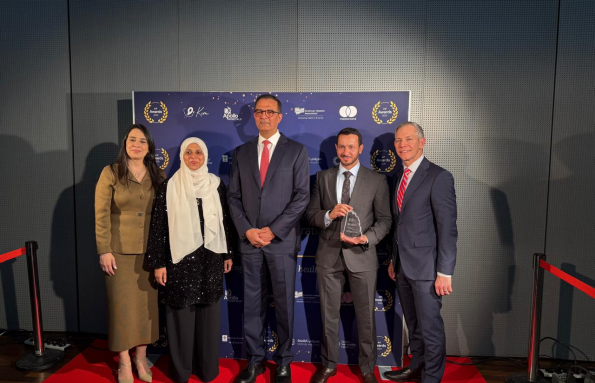Abu Dhabi, United Arab Emirates, November 23, 2020: Physicians at Abu Dhabi-based Sheikh Shakhbout Medical City (SSMC), the UAE’s largest hospital for serious and complex care and a joint-venture partnership between Mayo Clinic and Abu Dhabi Health Services Company (SEHA), have introduced a pioneering new endoscopic procedure that is set to significantly advance patient care. This procedure, known as spiral enteroscopy, marks the first time the technique has been used in the UAE. It will be employed to examine, and in some cases, treat conditions in the small intestine, helping to improve diagnosis and patient outcomes for chronic and complex conditions. Dr. Matthew Gettman, chief medical officer of SSMC, commented: “We are extremely proud to bring a new and innovative examination and therapeutic technique to diagnose and treat small intestine conditions to the UAE. Patient care and experience are at the heart of everything we do, which is why we are committed to leveraging Mayo Clinic and SEHA’s knowledge and expertise to bring the latest medical advancements and diagnostic and treatment methods to their doorstep.” As part of the UAE’s integrated health ecosystem, SSMC is also partnering with other health care providers across the region to deploy spiral enteroscopy for their patients. This collaborative approach is aligned to SSMC’s goal of supporting the advancement of Abu Dhabi’s and the UAE’s standards of care. Spiral enteroscopy is an over-tube system that slides over an enteroscope, an instrument for inspecting the inside of the intestine, and has a spiral located on the tip. The spiral is rotated to allow the enteroscope to move quickly and gather the small intestine for examination. Dr. Abdulqader Almessabi, consultant of gastroenterology and hepatology and deputy chief medical officer for medicine, and Dr. Ibrahim Al Hosani, consultant of gastroenterology & hepatology, pioneered the establishment of the spiral enteroscopy technique at SSMC. Dr. Al Hosani is the first physician in Abu Dhabi to perform spiral enteroscopy for a patient. The procedure was done for therapeutic purposes through the colon. “Diagnosing and treating conditions within the small intestine has traditionally involved invasive and time-consuming procedures. With innovative techniques like spiral enteroscopy, the examination of gastrointestinal conditions and several treatment procedures now take less than half an hour, a significant improvement than the former standard time of two hours,” said Dr. Al Messabi. The technique is used to examine patients with symptoms that are indicative of gastrointestinal conditions, such as Crohn’s disease, the inflammation of the digestive tract; unclear iron deficiency anemia, small bowel ulcerations, small bowel bleeding and small bowel masses. Dr. Al Hosani explains that in certain cases, physicians can also treat conditions using spiral enteroscopy, such as removing tumors, treating bleeding, or opening intestinal narrowing. It can also be utilized to dissolve a bezoar, a solid mass of indigestible material that accumulates in the digestive tract, sometimes causing a blockage in the stomach or intestinal tract. “Spiral enteroscopy allows for improved overall maneuverability, enabling physicians to reach lesions or areas of examination more quickly via smaller incisions, subsequently lessening procedure times. “The new technique also offers physicians a clearer view of the lesion or area of examination, with increased ease of use during therapeutic interventions.” Dr. Al Hosani concludes: “The motorized advancement of spiral enteroscopy, partnered with the soft fins of the spiral segment and integrated water jet, allows the tool to become an extension of the physician’s hand and sight, allowing for smooth, safe and deep insertion as well as more precise and accurate positioning.”
- About us
- Patients & Visitors
- Our Doctors
- Departments & Divisions
- Department of Paediatrics
- Department of Surgery
- Aesthetic Plastic Surgery
- Burn Centre
- General Surgery
- Metabolic and Bariatric Surgery
- Neurosurgery
- Ophthalmology
- Oral and Maxillofacial Surgery (OMF)
- Orthopaedics
- Otolaryngology – Head and Neck Surgery (ENT)
- Paediatric and Neonatal Surgery
- Paediatric Surgery and Paediatric Urology
- Thoracic Surgery
- Urology
- Vascular Surgery
- Department of Medicine
- Department of Pathology and Laboratory
- Department of Critical Care
- Department of Emergency Medicine
- Department of Clinical Imaging
- Department of Obstetrics and Gynaecology
- Department of Anaesthesiology
- Department of Physical Medicine and Rehabilitation
- Clinics
- Department of Clinical Nutrition
- Department of Nursing
- Department of Radiation Therapy
- Education
- Introduction to Education
- Clinical Observership Programme
- Non-Clinical Internship Programme
- Graduate Medical Education Centre
- CME Centre
- Centre of Innovation and Medical Simulation
- Nursing Education Centre
- Medical Student Education Centre
- Health Sciences Education Centre
- Staff Development Centre
- SSMC Training Academy
- Research
Book Appointment
- Request an Appointment
800 7762
- About us
- Patients & Visitors
- Our Doctors
- Departments & Divisions
- Department of Paediatrics
- Department of Surgery
- Aesthetic Plastic Surgery
- Burn Centre
- General Surgery
- Metabolic and Bariatric Surgery
- Neurosurgery
- Ophthalmology
- Oral and Maxillofacial Surgery (OMF)
- Orthopaedics
- Otolaryngology – Head and Neck Surgery (ENT)
- Paediatric and Neonatal Surgery
- Paediatric Surgery and Paediatric Urology
- Thoracic Surgery
- Urology
- Vascular Surgery
- Department of Medicine
- Department of Pathology and Laboratory
- Department of Critical Care
- Department of Emergency Medicine
- Department of Clinical Imaging
- Department of Obstetrics and Gynaecology
- Department of Anaesthesiology
- Department of Physical Medicine and Rehabilitation
- Clinics
- Department of Clinical Nutrition
- Department of Nursing
- Department of Radiation Therapy
- Education
- Introduction to Education
- Clinical Observership Programme
- Non-Clinical Internship Programme
- Graduate Medical Education Centre
- CME Centre
- Centre of Innovation and Medical Simulation
- Nursing Education Centre
- Medical Student Education Centre
- Health Sciences Education Centre
- Staff Development Centre
- SSMC Training Academy
- Research
Book Appointment
- Request an Appointment
800 7762






